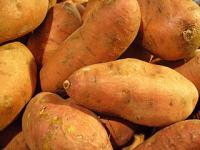X. Zhang from School of Public Health, Shandong University in Shandong, PR China and colleagues metaanalyzed data from previous studies and found those who had a high intake of vitamin A or maintained a high serum level of vitamin A had their risk for cervical cancer reduced by 40%.
The meta-analysis was intended to examine the association between intake of vitamin A including retinol, carotene and other carotenoids or blood levels of retinol and carotene and risk of cervical cancer.
A total of 11 studies on dietary vitamin A and 4 studies on blood vitamin A, together including 12,136 participants, were found from major databases that meet the eligibility criteria and picked for the metaanalysis.

A 41% reduction in cervical cancer risk was found in women with high intake of total vitamin A and a 40% reduction in the risk was found in those who maintained a high level of vitamin A.
Specifically, high intakes of retinol, carotene and other carotenoids were associated with 20%, 49% and 40% reduced risk of cervical cancer, respectively. And high serum levels of retinol and carotene were associated with 14% increased risk and 52% reduced risk of the disease.
It is unknown how to explain why high serum levels of retinol were linked to a higher risk of cervical cancer. But the analysis overall indicates that vitamin A prevent cervical cancer.
The researchers concluded "Vitamin A intake and blood vitamin A levels were inversely associated with the risk of cervical cancer in this meta-analysis."
Vitamin A is available from plant-derived foods and also available as a dietary supplement. It is generally believed that foods with high vitamin A poses little risk whereas high doses of vitamin A supplements can be toxic particularly when a high dose is used for a long term.
Foods high in vitamin A include sweet potato, carrots, spinach, kale, collard Greens, turnip Greens, Swiss Chard, winter Squash, and mustard greens.







